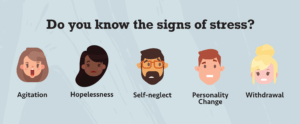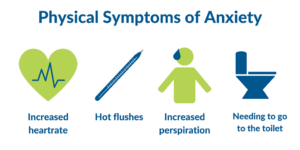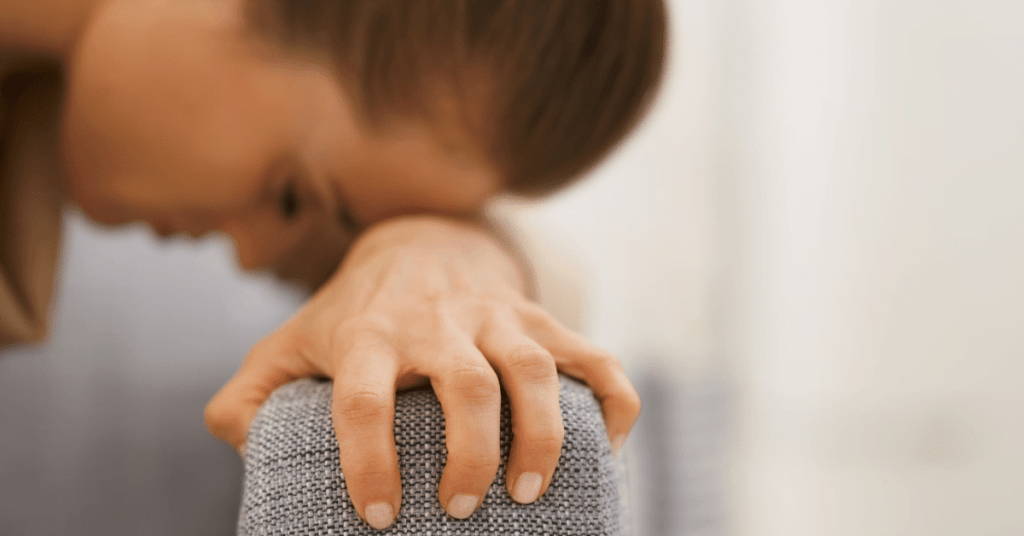Contents
Stress Vs Anxiety: How Do These Differ?

Stress vs anxiety and are not the same thing. We often confuse stress with anxiety because stress is a type of stress that comes from something we have control over, such as giving an exam or talking to new people. Anxiety is stress that happens when we worry about something uncontrollable like an illness or death. It’s important to know the difference between the two so you can get help if you need it.
The stress vs anxiety difference is sometimes confusing. Here’s what to remember: stress comes from something you have control over. Whereas, anxiety stress happens when you are worried about something that is out of your control like having any disorder or even worse.
What Is Stress vs Anxiety?
Stress has many different synonyms like stressors, strains, stressfulness, stress-inducing situations, stressors. It is created when our bodies react to stressors in our environment. Stress is also known as the body’s fight or flight response. When an organism is confronted with stressors, they go into a stress mode where they are ready to either fight the stressor off or run away from it.
Anxiety stress is different from stress in that stress can be caused by stressors that are controllable. There are also stressors that are uncontrollable, which can include an illness or death. Anxiety stress happens when someone worries about something uncontrollable. Stress happens when our bodies react to stressors in their environment. Stress is known as the body’s fight or flight response. Anxiety stress is different from stress in women where stress can be caused by stressors that are controllable.
An example of stress is that stress can be caused by stressors that are controllable, like taking a test or meeting new people. There are also stressors that are uncontrollable, which can include an illness or death.
Symptoms Of Stress Vs Anxiety

Examples of stress for a man: work deadlines, sports competition, meeting new people.
Stress is created when our bodies react to stressors in our environment. Stress is also known as the body’s fight or flight response. When an organism is confronted with stressors, they go into a stress mode where they are ready to either fight the stressor off or run away from it.
Anxiety stress can cause symptoms such as frequent stress, stress symptoms, stress symptoms in women. Anxiety stress is created when someone worries about something uncontrollable.
Signs Of Stress
Stress is the body’s natural response to something that stress cannot control. Stress in women and stress in men can be experienced differently and stress in women and stress in men varies from person to person, but there are some general signs for stress in women and stress in men. Some signs of stress are-

- Heartburn
- Indigestion
- Dizziness or lightheadedness
- Tension headaches
- Muscle stress
- Agitation or hopelessness
- Self-neglect
- Withdrawl
Signs Of Anxiety
The stress and anxiety symptoms typically have a gradual onset. Physical signs of stress and anxiety may differ because stress is a response to a stressor while anxiety can be a generalized emotion that doesn’t have a stressor. Signs of stress may include physical symptoms such as-

- Headaches
- High blood pressure
- Stomachaches
- Muscle tension
- Upset stomach
- Shaking
- Sweating
- Heart palpitations (aka the feeling like your heart is beating really fast)
- Heart palpitations
- Trembling in their voices when they speak
- Feeling overwhelmed when dealing with stressors
- Wanting to withdraw from society or isolate yourself
- Feeling like you’re on the edge all the time
Causes Of Stress Vs Anxiety

Stress is not always caused by stressors, but can also come from people’s thoughts and feelings. Individuals who are affected by stress may feel stress in their muscles, headaches, difficulty sleeping, difficulty breathing, thoughts of hopelessness, or death. Stress can be brought on by stressors that are large events or stressors that are less significant. It is much easier to manage stress than anxiety.
Anxiety is a mental health condition that is characterized by excessive worry over prolonged periods of time. Anxiety can be triggered by stressors, but it does not need to be. Individuals who are dealing with anxiety can experience increased heart rate, shortness of breath, trembling, sweating, or nausea to name a few symptoms.
Both stress and anxiety can be caused by stressors, but stress is a reaction to stressors while anxiety is becoming overwhelmed with stressors. Whether the stressor comes from self-imposed pressure or from an outside source, it is important for individuals dealing with stress not to get caught up in the stressor itself. Focusing on past or future stressors takes individuals out of the present moment which can make stress worse.
How Do Stress And Anxiety Affect Your Body?
The stress response is a natural reaction to fear or stress. The stress response system includes the brain, the nervous system, the endocrine system, and organ systems such as the digestive system. Stress responses include an alarm phase that shifts from excitement to fear as stress increases. Stress may also trigger the fight-or-flight response.
Anxiety can be described as persistent apprehension or dread of certain events. A stress response will not always be triggered by anxiety, although some people experience stress responses in virtually any situation, even if it’s something they enjoy doing. The stress response is also not the same for every person. It depends on our previous experiences and our strengths of coping skills.
Ways To Manage Stress/Anxiety
There are many ways that you can treat stress and anxiety. You can talk to someone about your stress or anxiety. For example, if you are stressed out about a test you have coming up, talking to someone else before the test will help you stress less about the test.

- Meditation
- Counseling
- Exercise
- Yoga
- Nature walks
- Talk to your loved ones about things that are stressing you
- Eating right and exercising can help treat stress in women or stress in men. Eating right gives your body nutrients in stress in women or stress in men
- Exercising also helps release stress
There are many ways to help with stress or stressors. Some of these stress-relieving methods can be stored in our homes, like stress relievers and stress management techniques. There are also stress relief tips that can be found online which provide stress relief tips for men and stress relief tips for women. Exercise helps with stress management because stress is not only created in our minds, but stress also runs through our bloodstream. These stress relief tips include deep breathing stress relievers and bubble bath stress relievers to help with stress management. There are many other ways to relieve stress like stress-relieving music, reading a good book, or carving out some time for alone.
Stress is the body’s natural response to something that stress cannot control. Stress in women and stress in men can be experienced differently and stress in women and stress in men varies from person to person, but there are some general signs of stress in women stress in men.
Conclusion
It is important to know the difference between stress and anxiety. Stress can be caused by stressors, but it doesn’t need to be while anxiety stems from stressors that are becoming overwhelming for an individual. When you feel stressed or start feeling overwhelmed with stress, it’s time to take a step back and try some self-soothing techniques like deep breathing exercises or meditation before anything else. If these don’t work for you, consider talking to your doctor about ways in which they may help you find relief. Finally, if all of this sounds too complex for you right now there are many different resources available online including apps that will teach you how not only to manage but also prevent stress when possible. There’s no need to beat yourself up.
For more information, please contact MantraCare. Stress can have both physical and mental effects on the body, leading to negative consequences such as anxiety, depression, and even physical illnesses. If you have any queries regarding Online Stress Counseling experienced therapists at MantraCare can help: Book a trial Stress therapy session


